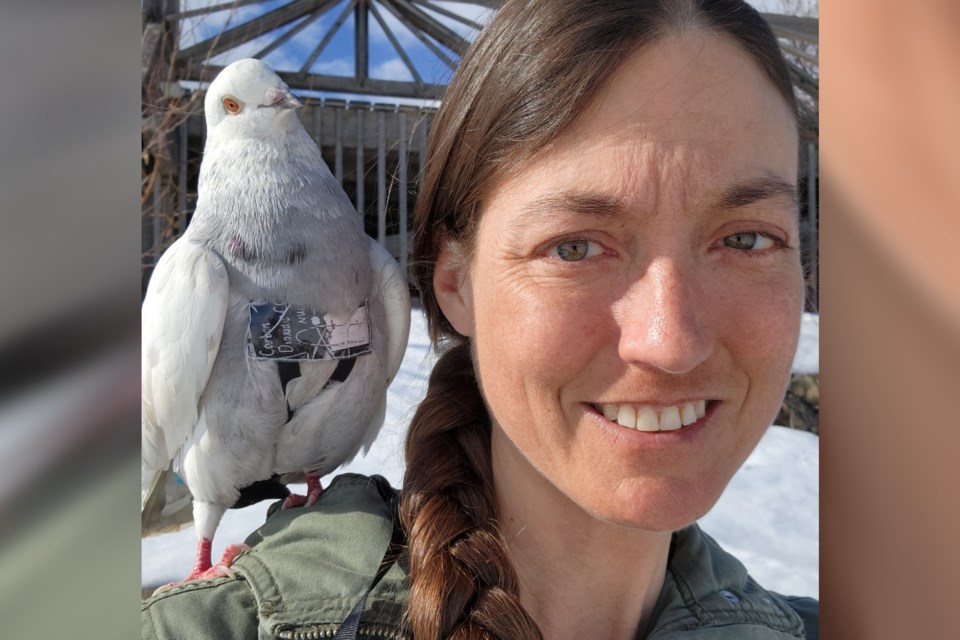Pigeons, often misunderstood and underappreciated, have played a significant role in various aspects of human history.
Despite their negative reputation in urban environments, it is important to acknowledge and respect pigeons for their remarkable contributions, particularly during Canadian war efforts where they served as messengers, saving countless lives. This article delves into the rich history of pigeons and sheds light on their often-overlooked heroism.
The history of pigeons dates back thousands of years. Originating from wild rock doves, humans have domesticated pigeons since ancient Egyptians, Greeks, and Romans times. They were recognized for their intelligence and used as messengers, symbols of peace, and even as sporting birds.
The pigeons we see in North America today, originated oversees and were brought across domesticated.
During the First World War and the Second World War, pigeons played a vital role in military communications. Their exceptional homing instincts and navigational abilities made them invaluable messengers when other means of communication were compromised. Pigeons were extensively used by the Canadian/British/American military as a reliable method to transmit critical information across enemy lines and difficult terrains.
Many soldiers owe their lives to the timely arrival of these feathered messengers, as they delivered crucial information that could be the difference between success and failure on the battlefield.
The bravery and sacrifices of pigeons did not go unnoticed. Numerous pigeons received recognition for their exceptional service. Among them, the most famous is Cher Ami, a homing pigeon who saved the lives of 194 American soldiers during the First World War. Despite being shot twice and injured, Cher Ami delivered a message that helped rescue the trapped soldiers. For its gallant efforts, the pigeon was awarded the French Croix de Guerre medal.
It is important to shed the negative stereotypes associated with pigeons and acknowledge their intelligence, resilience, and unwavering dedication.
By respecting pigeons, we pay tribute to their remarkable history and the vital role they played in ensuring the safety and success of our armed forces.
In recent times, pigeons have faced a decline in reputation, often seen as pests in urban environments. However, it is crucial to recognize their historical significance and contributions to human endeavors. Pigeons possess remarkable intelligence, adaptability, and loyalty, traits that should encourage us to treat them with respect and appreciation.
Domesticated pigeons are often overlooked as pets, but they possess numerous qualities that make them great companions. Such domesticated breeds include Fantails, Frillbacks, Pouters, Jacobins, Tumbler, Racing/Homing Pigeons.
Their trainability, affectionate nature, and low maintenance requirements make them suitable for a wide range of pet owners.
Charles Darwin, who studied the theory of evolution, used pigeons and finches as the base of his studies. Even Nikola Tesla, who is best known for his contributions in the development of alternating current, had a devout love for his pigeons.
In a society that strives for progress and empathy and diversity, it is crucial that we extend respect and dignity not only to our fellow human beings, but also to those who are often overlooked or marginalized. This includes the homeless, our veterans and, yes, even pigeons.
- Homelessness is a complex issue that affects individuals from every walk of life.
- Our veterans, who have selflessly served and protected our nations, deserve our utmost respect and support.
- Pigeons, often dismissed as mere pests, also deserve our respect and appreciation.
True progress is measured by how we treat the most vulnerable among us. By extending dignity and respect to the homeless, our veterans, and even pigeons, we cultivate a culture of compassion and empathy.
In conclusion, the inclusion of domesticated pigeons within Sudbury Ontario's Bylaw Article 51 (Other Domesticated Animals, which includes toucans, macaws,cockatoos) would be a progressive step towards promoting responsible pet ownership, possibilities of rehoming unreleasable pigeons to the wild to forever homes and embracing the diverse needs and interests of the community.
By recognizing the unique attributes of domesticated pigeons and implementing appropriate regulations, Sudbury can strike a balance between public safety and the rights of pigeon enthusiasts, and also help eliminate the stigma against pigeons.
This inclusive approach not only fosters a sense of community but also showcases Sudbury as a city that values compassion, diversity, and the harmonious coexistence of humans and animals.
Andrea Gosselin lives in Greater Sudbury.
